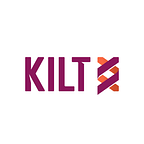Announcing First Cohort of KILT’s Initial Collators Programme
13 August 2021, Berlin — KILT Protocol today announced the selection of the first 16 collators that will comprise the Initial Collators Programme. This cohort represents a distributed network of collators from around the world who are well known in the Kusama and Polkadot ecosystems.
The number of active collators will gradually increase to 75 after KILT’s mainnet launch, and become permissionless as the network matures. The Initial Collators include:
- BOTLabs GmbH, Germany
- B.T.E BOTLabs Trusted Entity GmbH, Germany
- Canontech, Switzerland
- Cody King of Codenode, Canada
- Dwellir AB, Sweden
- galaniprojects GmbH, Germany
- Glacier Blockchain Technology Co., Ltd., China
- Martin, Germany
- Pacobits of Stakely, Spain
- Petr of Polkadotters, Czech Republic
- Shez of Staking4All, South Africa
- Skedley, Germany
- STAKENODE, Poland
- Stakin, Estonia
- Tjwelde, Germany
- Yarco Hayduk of Pragma Ventures, Ukraine
KILT’s mainnet will launch after it secures a Kusama parachain slot. As mentioned in our earlier blog post, KILT’s parachain will include staking and our initial token economy at launch. This means the first phase of staking will be possible on KILT from genesis.
To prepare for KILT’s launch, we selected and onboarded this first group of collators over recent weeks. In the near future we anticipate the number of collators will be gradually increased to 75 active collators, with a possible maximum of 150 collators (active and candidates). Collator selection will become permissionless when decided by governance, after the Sudo key is removed and KILT is decentralised.
Collator and Delegator Framework
Kusama uses a Delegated-Proof-of-Stake (DPoS) system, with validators securing the Relay Chain and validating blocks. KILT uses a modified version of DPoS called Limited Delegated Proof of Stake (LDPoS). In this system, collator nodes hold the data of the blockchain, collect transactions and build blocks.
Delegators can choose a collator to back with their stake, thus increasing the total stake on that collator. One collator can have a maximum of 25 delegators backing them, where delegators with higher stakes for one collator displace delegators with smaller amounts at stake for the same collator.
Block rewards go to the collator who produces an actual block, and their delegators. By putting their stake on a collator, delegators signal their trust in quality performers. As recognition for bootstrapping and maintaining the system, the delegator rewards are higher in the first years and then decrease as follows:
- At the start, collators receive rewards up to 10% per annum on their stake from the first year. The reward rate decreases by 2% per year (which would mean that in the second year, the rewards will be up to 9.8% per annum).
- Delegators receive rewards up to 8% per annum on their stake in the first year, 6% in the second year. From the beginning of the third year there will be no reward for delegators, as it is anticipated that by then other KILT functions will be in place that will provide opportunities for token holders to support the system and earn rewards.
We chose this LDPoS mechanism as part of a carefully-considered token economy that aims to have relatively low inflation, starting at 5% and decreasing to 1% within the first 6 years and slowly moving to 0% afterwards.
About KILT Protocol
KILT is an open-source blockchain protocol for issuing self-sovereign, anonymous and verifiable credentials for Web 3.0. KILT enables innovative business models around identity and privacy, addressing the need for reliable identity solutions in the digital world. It allows users to claim personal attributes, have them attested by trusted entities, and store the claims as self-sovereign credentials. KILT Protocol is developed by BOTLabs GmbH in Berlin and is the technology on which SocialKYC, a decentralised identity verification service, is built.
Press contacts:
Christine Mohan, christine@kilt.io
Elisa Dratsdrummer, elisa@kilt.io
